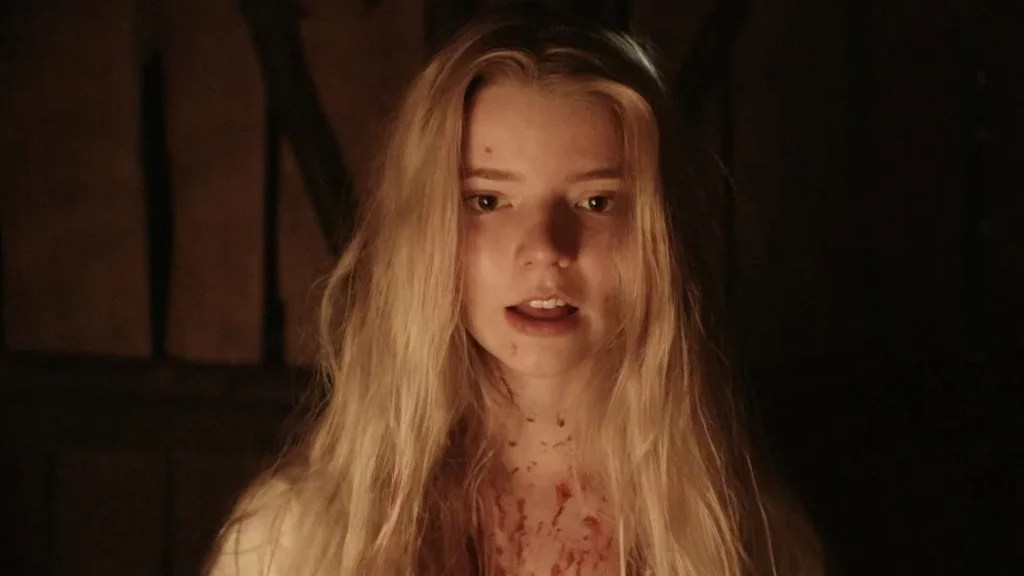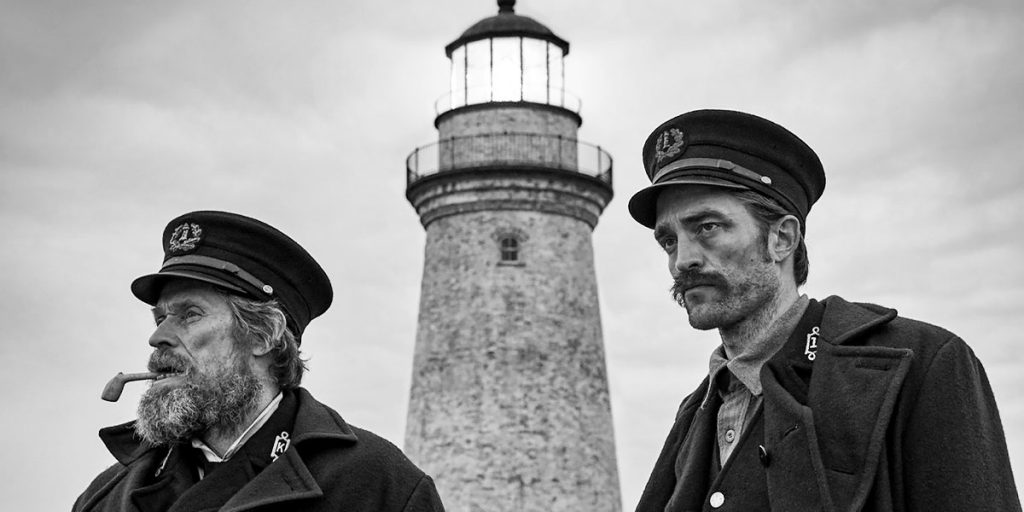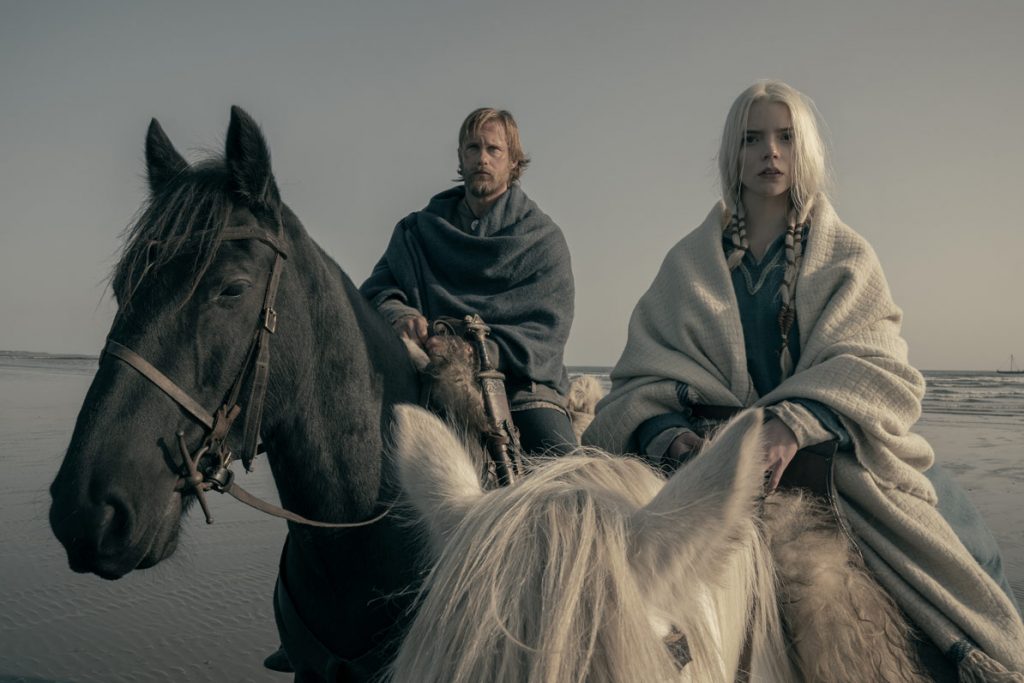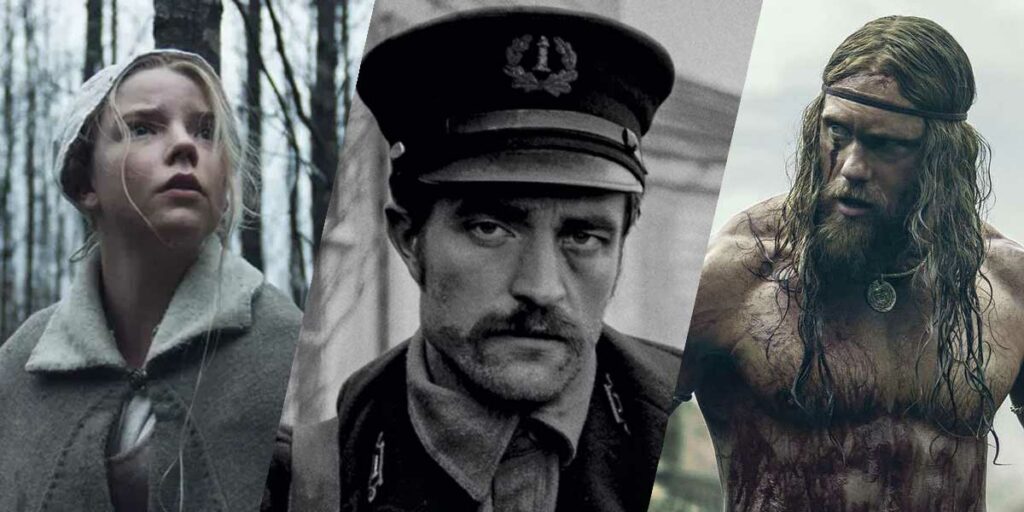Religion & Films: The films of Robert Eggers show the importance of creative expression, even if his own religious views are murky and complicated.
Robert Eggers hit the independent film scene relatively recently with his 2015 debut The Witch. He has since made two other successful films, The Lighthouse (2019) and The Northman (2022). Each film provides a unique story for the viewer to witness, but it is undeniable that Eggers has already established his coherent voice as an artist. They give a dark, pessimistic view of humanity and dissect the ways we have often warped religion to serve our own self-centered interests.
Nailing down Eggers’ exact religious views is tricky, as he has never explicitly expressed his worldview. However, he has discussed the difficulty of making art in a “modern secular society,” saying culture today is driven by ego rather than true creative expression. He refers to “medieval craftsmen” who created art to please a higher power. He seems to believe that a more honest mode of storytelling has been lost as artists have moved more towards a capitalistic approach towards filmmaking rather than creating art for its own sake, regardless of how the public views it. He admires the artists of the past who made art for a reason other than money. In a way, he seems to view filmmaking in the same way his films view religion: Both are often used as a means to a selfish end, rather than a mode of achieving something beyond ourselves.
The Witch (2015)

The Witch is perhaps Eggers’ greatest achievement and his most spiritually significant work. Following a Puritan family in the 1630s who are banished from their colony, The Witch explores the consequences of religious extremism and how radicals often dissuade people from any religious faith. Thomasin (Anya-Taylor Joy) and her siblings are tormented by unknown dark forces seemingly living in the woods. Their father, William (Ralph Ineson) and mother Katherine (Kate Dickie) are quick to blame the children for the unusual occurrences, especially Thomasin.
William takes prayer and his spiritual rituals seriously but does so at the cost of being a loving father. He locks his children in the goat house, telling them to “think on thy sins.” These acts and the death of her siblings lead Thomasin down a dark and dangerous path, culminating in a chilling scene of her joining a coven of witches in the forest. She dances with them and begins to levitate. This unsettling ending reveals how people can mistake evil as a sense of relief from religious extremism. Thomasin is freed from the sins of her father but embraces a new sin all her own. The Witch shows the hypocrisy of extremists, saying they typically do not truly follow the ways of the religion they espouse.
The Lighthouse (2019)

The Lighthouse remains Eggers’ most challenging, abstract work, so extracting religious themes is simply one way of analyzing the film. One could easily assume that no spiritual examination is possible in this instance. Starring Willem Dafoe and Robert Pattinson as two lighthouse keepers, the film explores ideas of isolation and the ways human beings (men especially) withhold their desires. These are universal, not necessarily religious, ideas, but upon closer examination, one interesting, more theological theme begins to take shape.
Much like The Witch, The Lighthouse has something to say about information, ideals, and morals being passed down from one generation to another. Much in the way William’s actions lead his children away from the Christian faith in The Witch, The Lighthouse portrays Dafoe’s Thomas Wake as an older, superstitious curmudgeon who pesters Pattinson’s younger, skeptical Thomas Howard. As the two drift further into insanity, Howard refuses to believe the “tall tales” spouted by Wake, especially the one involving the seagulls (Wake believes the birds contain the souls of dead sailors). Both men are lost, but in different ways. Both of their worldviews are shaky, and the confusion leads to terrible consequences for both men.
The men share a brief exchange where God is mentioned; Wake asks if Howard is a “praying man,” with Howard responded that he does not pray as often as he should but admits to being “God-fearing.” The tall tales, myths, and religious references in The Lighthouse demonstrate the often-confused worldviews of the generations, where beliefs about the transcendent often feel like an obligatory afterthought rather than a consuming way of life.
The Northman (2022)

Eggers’ newest, The Northman, explores religion from a different angle than The Witch. Rather than discussing Christianity, the film instead inspects Norse mythology and those who believed it, following a man in AD 895 and his quest for vengeance. Fate is a prominent theme, as Amleth (Alexander Skarsgård) embarks on this quest after swearing to “avenge you father, save you mother, kill you Fjönir.” The film calls into question the ideas of fate, and whether Amleth could have abandoned his bloodlust, choosing instead to raise a family with Olga (Anya Taylor-Joy), a sorceress he encounters during his travels.
Despite his insistence that he acts out of fate, he says “my heart knows only revenge,” indicating he acts out of his own will and desire. Eggers seems to be indicating that one cannot act in this way, and while he does not give any sort of counter argument, the film’s dark tone reveals the director’s thoughts on this egotistical approach to life. The violence in the film is not glorified or sensationalized but is instead brutal and gut-wrenching. This is not a happy tale of a man achieving his fate or destiny; it is a warning against acting in your perceived “best interest.”
Eggers’ films are dark, challenging, and offer a bleak commentary on the human condition. He exploits the way people abuse their power and act in their own interests in the name of “religion,” while also exploring how humanity often does not put their self-described beliefs into practice. These movies express the danger of utilizing religion in this manner, in much the same way Eggers himself has warned that art could face a horrible death if artists only care about box office success rather than making something truly beautiful and transcendent.

